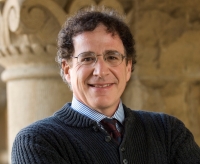
You are here
Sam Wineburg and Eli Gottlieb: What would George do?
By Sam Wineburg and Eli Gottlieb
Opinion
George Washington issued his Thanksgiving Proclamation in 1789 invoking the "providence of Almighty God," acknowledging "gratitude for His benefits," and "humbly imploring His protection and favor" -- all in the first sentence.
Such phrases lead many religious leaders to claim Washington as a co-religionist. Tim LaHaye, of "Left Behind" fame, asserts that the first president was a "devout believer in Jesus Christ." The American Family Association, the group that sponsored Rick Perry's National Day of Prayer, waved Washington's Proclamation in front of those who claimed the service was unconstitutional.
Over 200 years separate us from Washington's words. Can we be sure that we know what he meant?
We explored this question by giving Washington's text and other documents to a group of well-educated adults. We selected participants who varied in religious beliefs and training in history. We interviewed clergy, atheist scientists and a mix of atheist and believing professors of history.
Clergy viewed Washington as an unabashedly religious leader. A Methodist pastor saw the Proclamation as evidence that the nation was founded on a "general Christian faith" and that "religion and spirituality played a significant role" in the early republic. An evangelical minister ruefully observed that Washington's language would not be tolerated in today's zealously secular political culture.
Scientists also heard echoes of Christian sensibility.
But while clergy applauded Washington's religiosity, scientists bristled at his transgression of the boundary separating church from state. One scoffed at "all the God talk." Another fumed that Washington blithely assumed that "everybody believed the same thing."
Historians saw something quite different. Regardless of their religious beliefs, they viewed Washington's words as neither an endorsement of a Christian state nor as evidence of the president's piety. Rather, they alighted on the document's civic and secularizing elements, observing not only what Washington said, but also what he didn't.


